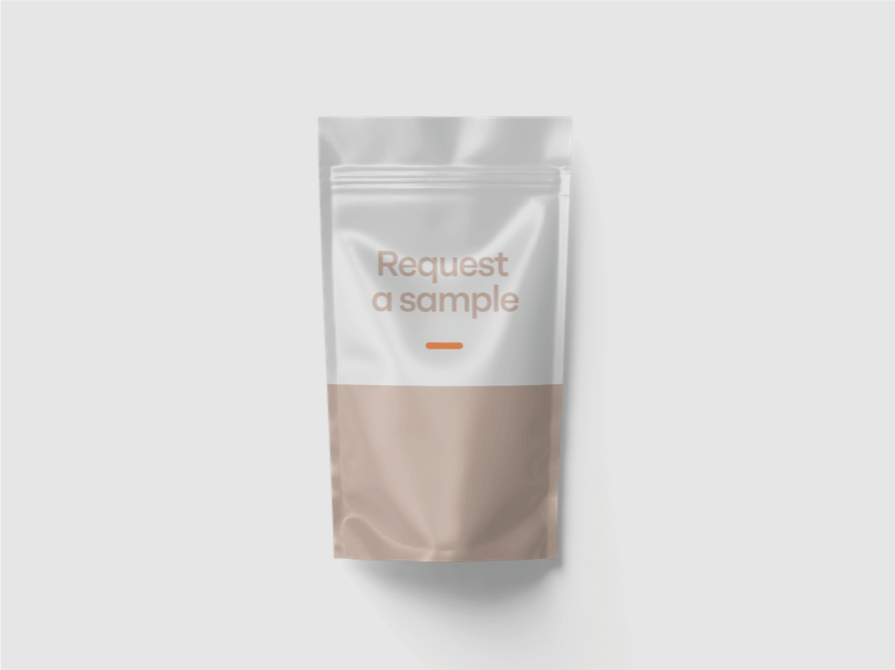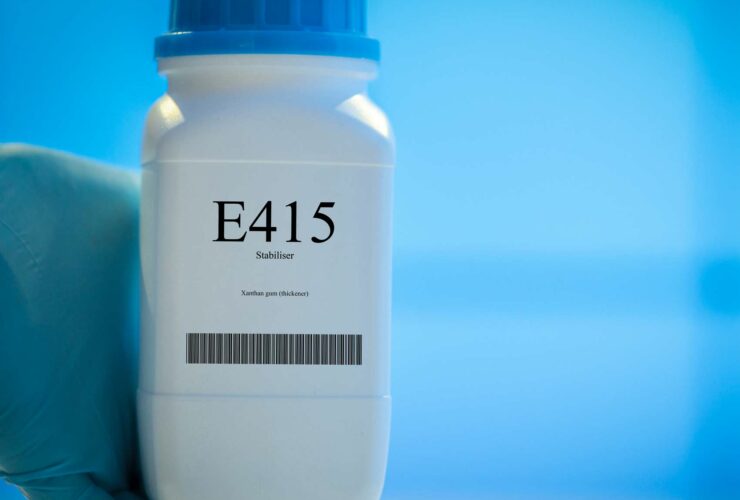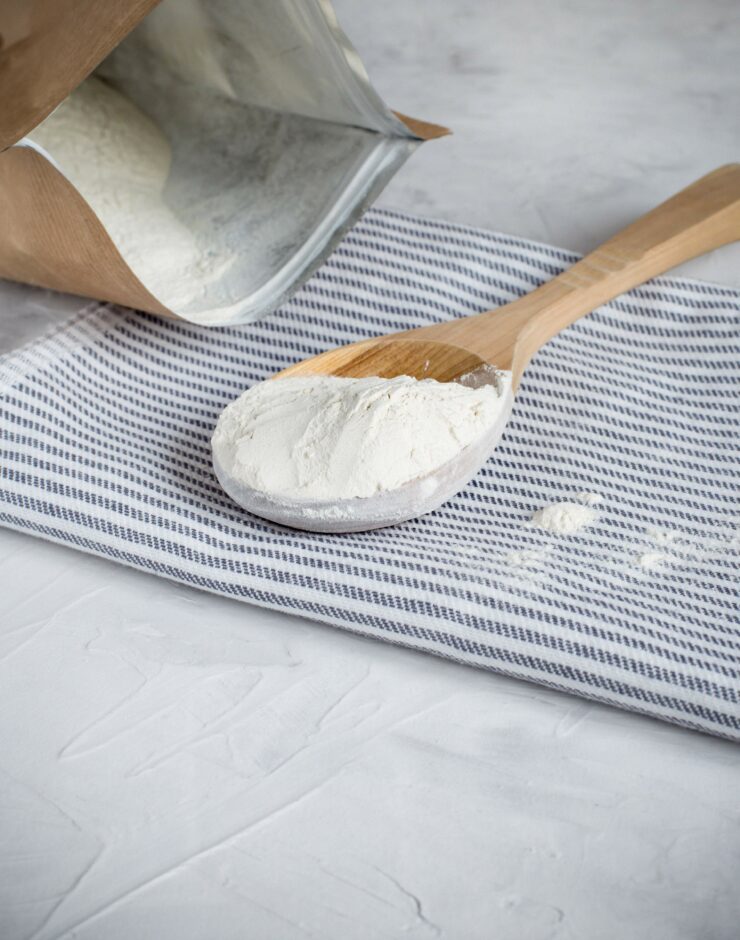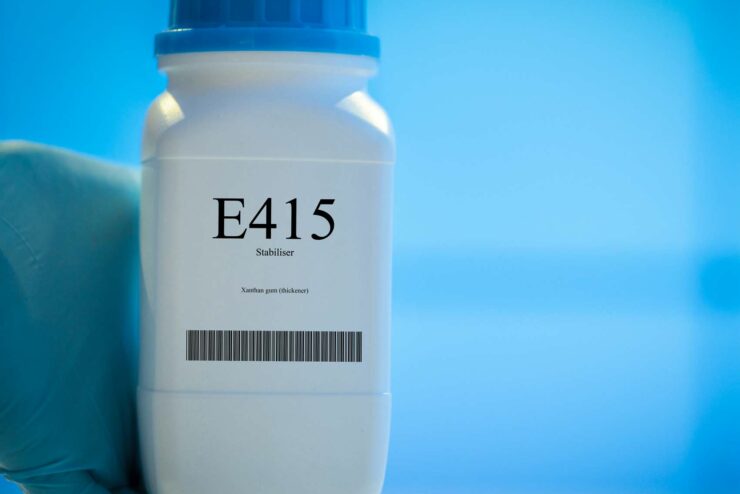Applications
In Food Manufacturing
Xanthan gum is often utilised by food and drinks manufacturers as it stabilises products by preventing ingredient separation and enhancing consistency, shelf life, flavour, and appearance. It’s favoured for thickening liquids without altering colour or taste. It is also commonly used in ice cream, baked good, dressings, sauces and soups. Xanthan gum is also an important ingredient in gluten-free cooking as it substitutes for gluten as a thickening agent. Additionally, Xanthan gum boasts pH and heat, freezing and thawing stability.
In Personal Care Products
Xanthan gum can also be used in the production of various cosmetic and personal care items, serving as a thickening agent in products like toothpaste, lotions and creams.



